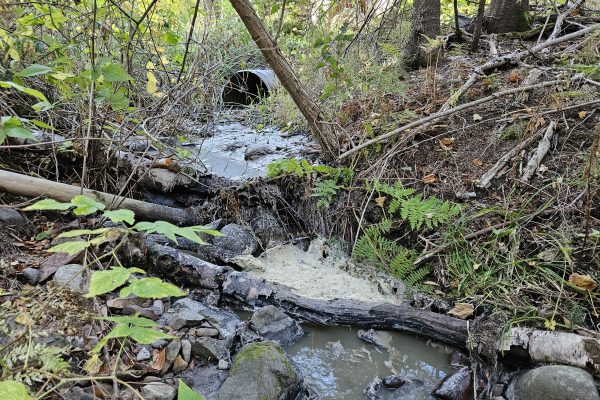Grand Marais City Council continues to discuss food truck ordinance as summer season arrives
Food trucks in downtown Grand Marais continues to be a hot topic as summer arrives.
At issue locally is where food trucks should be allowed to operate in Grand Marais and what type of oversight should city officials have when it comes to food truck location.
A decision regarding a possible ordinance from city officials, however, remains in limbo following a May 25 meeting of the Grand Marais City Council. No decision on oversight or regulation of food trucks was made by the council as they continue to navigate the upward trend of food trucks versus traditional dine-in restaurants. The issue is not unique to Grand Marais, as food trucks are becoming popular across the nation in large cities and tourist destinations similar to Grand Marais.
The owner of the local business and food truck, The Bad Seed, originally approached the city council May 11 to request approval for a seasonal license to be parked at Artists Point this summer. After discussion on the topic, it was tabled to a future meeting.
Included within the May 25 agenda was a sample food truck license from city officials in Winona, Minn. The council focused the discussion on key factors outlined within the sample license agreement.
The main issues considered and discussed were the number of food trucks allowed, the locations for the food trucks and how to establish a fair market value price for use of public property.
Each council member presented perspectives on potential issues and concerns.
Council member Tracy Benson addressed the issue of increased garbage in the community and if the city would be responsible for supplying additional garbage receptacles in identified areas.
Councilor Craig Schulte expressed concern for the use of public property for commercial use.
While council member Anton Moody said May 25 that “it’s important to focus on the big picture.” Moody emphasized finding or establishing zones for food trucks to be parked, rather than scattering them around the city.
Mayor Jay DeCoux said in a May 31 interview with WTIP that “the bottom line came down to the fact that this is an ordinance level discussion that we felt we couldn’t really rush through.”
DeCoux added that “feedback from the community is really important in this and how we move forward.”
DeCoux said the council is still gathering information and encourages people to share their thoughts on the issue.
Moving forward, DeCoux said that the food truck discussion will be resumed during the June 8 meeting. A draft license agreement for Grand Marais will be presented during the meeting.
Safe Routes to School Trail & Bike Lanes
In other news from the May meeting, Cook County Highway Engineer Robbie Hass presented plans for the multi-use ‘safe routes to school trail’ along the Gunflint Trail from Highway 61 to County Road 7. The project is funded by the Minnesota Department of Transportation. The statewide project intends to improve access and safety on prioritized routes to and at schools.
While a start date hasn’t been established, DeCoux said he expects construction to begin mid-summer.
The city council unanimously approved the project.
Hass also presented an update on the bike lanes in downtown Grand Marais. The Minnesota Bike Alliance recently conducted a ‘bikeable assessment’ to determine connectivity and safety in town.
The results of the assessment determined that the bike lanes do not meet the legal requirements of 4-feet in width. Therefore, it is recommended that the use of bike lanes be discontinued.
The council agreed with the results of the assessment and decided to let the bike lanes fade away and to take down the signs.
Moving forward, DeCoux said cyclists will have to follow Minnesota state law and share the lane with vehicles.
In other city news, the Cook County Tennis Association requested funding for reconstruction of three tennis courts. The association provided the council with financial contributions for court reconstruction from 1999, 2009, and 2015 at the meeting. However, the association did not provide outlined contributions for 2022.
The city council suggested gathering financial contributions from other sources and coming back to the council in the final stages. They did not approve any funding during the meeting.
The final item on the agenda was a bid from LHB construction for the Community Connector project. Only one bid was received and it was $215,000 over budget. The city council quickly rejected the bid.
WTIP’s Kalli Hawkins spoke with DeCoux after the council meeting to learn more. Audio below.















